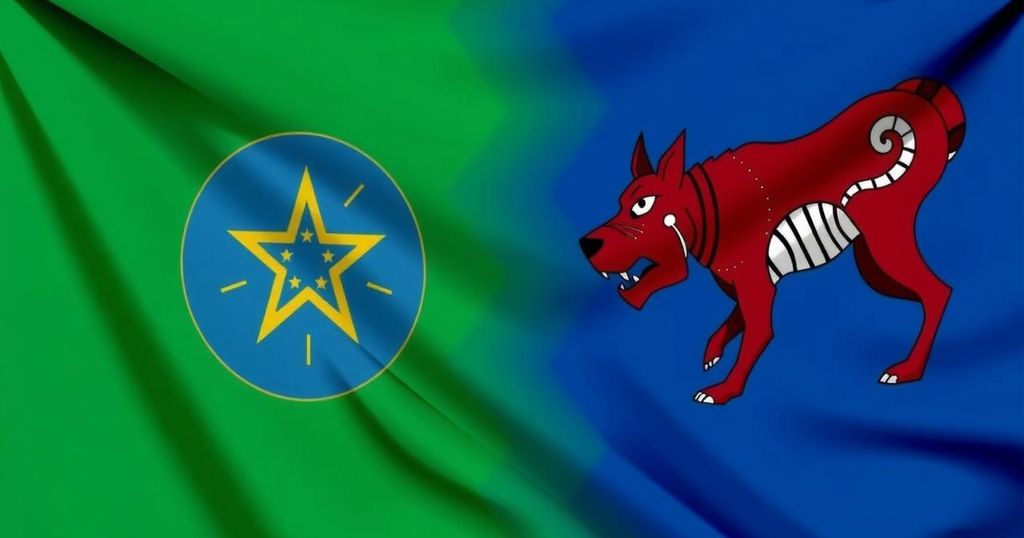Turkey is increasing its influence in Africa, utilizing its defense projects and trade networks, facilitated by its non-colonial historical background. With Foreign Minister Hakan Fidan’s upcoming meeting with African nations, Turkey aims to mediate the Ethiopia-Somalia dispute, backed by significant investments in infrastructure and military cooperation across the continent, fostering growing trade relations expected to exceed $40 billion.
Ankara is strategically extending its influence in Africa, leveraging its defense initiatives and extensive trade networks, enhanced by its historical context devoid of colonial legacy, according to diplomatic sources. Diplomats in Turkey assert that the nation is regarded as a “sought-after partner” within the African continent due to this non-colonial background. Foreign Minister Hakan Fidan is scheduled to meet with representatives from 14 African nations in Djibouti on November 2 and 3, continuing a dialogue established in 2008. One diplomatic source emphasized the advantage of Turkey’s historical context, stating, “When anti-imperialist leaders are looking for new partners, they think first and foremost of us.” Although the Ottoman Empire historically governed numerous African regions, its reign ended in the 19th and early 20th centuries, paving the way for the establishment of the Republic of Turkey in 1923. Recently, Turkey has positioned itself as a mediator in the protracted conflict concerning maritime access between Ethiopia and Somalia, with diplomatic sources indicating a unique trust that enables Turkey to facilitate negotiations effectively. Turkish investment in Somalia over the past two decades, which includes agricultural projects and infrastructure investments such as the Mogadishu airport and a military training center, has established a solid Turkish presence in the region. Recently, the Turkish exploration vessel Oruc Reis commenced oil and gas explorations off the Somali coast, under an agreement permitting drilling in three sizable areas. Additional agreements with Niger for natural resource exploitation have been established, further affirming Turkey’s commitment and involvement in the region’s mining and energy sectors. The Turkish mining company MTA operates gold mines in the Sahel, identified as rich in uranium as well. Turkish Energy Minister Alparslan Bayraktar highlighted the potential for oil and natural gas in these regions, coinciding with Turkey’s military protective partnership with Niger regarding the mines. Turkey has engaged in military cooperation with over 25 African nations and is recognized as the fourth-largest arms supplier to sub-Saharan Africa, as reported by the Stockholm International Peace Research Institute. This approach reinforces Turkey’s security partnership amidst growing regional instability. Moreover, the Turkish government has emphasized the necessity of concurrent economic investment tailored to enhance regional stability, as noted by Senegalese President Bassirou Diomaye Faye during his discussions with Turkish President Recep Tayyip Erdoğan in Ankara. In terms of infrastructure, Turkish construction firms are actively developing significant projects, including a proposed $6.5 billion railway in Tanzania. With trade between Turkey and African nations anticipated to surpass $40 billion in 2022, the operations of Turkish Airlines, connecting to approximately 50 locations across Africa, reflect Turkey’s deepening engagement. In conclusion, Turkey’s multifaceted approach combining military, economic, and infrastructural development contributes significantly to its growing influence in Africa, facilitating partnerships and peaceful negotiations within the region, while strategically leveraging its unique historical context to bolster relations with African nations.
The article discusses Turkey’s expanding influence in Africa through defense, trade, and strategic partnerships. It highlights Turkey’s historical non-colonial presence in Africa, differentiating it from European powers. The article further elaborates on Turkey’s mediation role in the Ethiopia-Somalia conflict, its investments in Somalia, and its military cooperation agreements across the continent, particularly in the Sahel region. Additionally, it presents recent developments, including oil explorations and significant trade growth, emphasizing the importance of security and economic development for enhancing stability in West Africa.
Turkey’s strategic investments and partnerships in Africa, underpinned by a non-colonial historical context, enable it to play a pivotal role in addressing regional conflicts and fostering economic growth. This aligns with its efforts to enhance diplomatic relationships and expand its influence, particularly in resource-rich regions, thereby promising significant benefits for both Turkey and its African partners.
Original Source: www.arabnews.com






